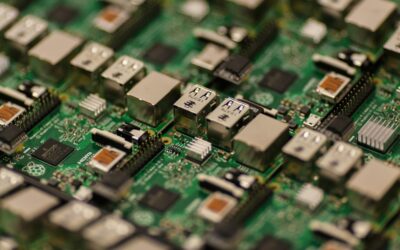Artificial Intelligence (AI) is revolutionizing the field of engineering, introducing unprecedented efficiencies and capabilities into long-established practices. From the intricate designs of mechanical systems to the vast networks of civil infrastructure and the complex electrical engineering circuits, AI is setting the stage for a new era of technological advancement. This blog delves into the transformative impact of AI across these critical engineering disciplines, showcasing how it’s paving the way for more innovative, sustainable, and efficient solutions that promise to reshape our future.
AI in Mechanical Engineering
Mechanical engineering, a discipline centered around designing and manufacturing mechanical systems, is witnessing a paradigm shift with AI integration. AI algorithms enhance the capabilities of simulation software used in the design phase, allowing for rapid prototyping and testing. This integration speeds up the design process and improves the precision and performance of mechanical components by optimizing them for specific operational conditions. According to a report by MarketsandMarkets, AI in the manufacturing market is projected to grow to $20.8 billion by 2028, at a CAGR of 45.6% during the forecast period. This growth is primarily driven by the increasing complexity of production systems and the need for autonomous and sustainable manufacturing.
In the realm of manufacturing, AI empowers predictive maintenance. Machine learning models analyze historical data to predict equipment failures before they occur. Industry Data suggests that implementing AI for predictive maintenance can reduce costs by up to 40% and downtime by 50%, according to Deloitte. This predictive capability ensures that machinery operates at peak efficiency and reduces unexpected breakdowns, thus saving significant costs and enhancing productivity. Additionally, AI-driven robotics and automation have transformed assembly lines, increasing speed and precision while allowing human workers to focus on more complex and creative tasks.
Beyond mere production, AI is instrumental in the life cycle management of mechanical systems. AI systems can simulate wear and tear on virtual models under different conditions, allowing engineers to predict when and how systems might fail or need maintenance.
You may also like: Understanding Cybersecurity: Threats to Watch Out For AI in Electrical Engineering
Electrical engineering, pivotal in the study and application of electricity, electronics, and electromagnetism, has been profoundly transformed by AI innovations. Smart grids exemplify this shift, where AI algorithms optimize the balance of electrical loads and the integration of renewable energy sources. Such AI-enhanced smart grids are pivotal in enhancing energy distribution efficiency, significantly cutting waste, and boosting sustainability.
Moreover, AI plays a crucial role in advancing autonomous systems and robotics, key domains within electrical engineering. Real-time data processing by AI algorithms is critical for the operational safety of autonomous vehicles, enabling them to make split-second decisions about navigation and hazard avoidance.
In consumer electronics, AI is revolutionizing product design, making gadgets like smartphones and smart home devices smarter and more responsive. The market research firm IDC projects that AI will drive a 25% increase in consumer satisfaction with smart home devices by 2025, emphasizing the user-friendly automation of routine tasks.
Additionally, the integration of AI in electrical engineering extends to predictive maintenance, where AI tools anticipate equipment failures before they happen, thus ensuring continuous system operation and reducing downtime. A notable example includes an MIT spinoff that developed an AI system capable of monitoring electrical loads with 98% accuracy, showcasing how AI can significantly improve maintenance responses and system reliability. These advancements illustrate AI’s indispensable role in shaping the future of electrical engineering, making it more efficient, safe, and aligned with sustainable practices.
Final Thoughts!
Integrating Artificial Intelligence into engineering marks a profound shift toward smarter, more efficient, and sustainable practices across all disciplines. AI’s capabilities, from enhancing design processes in mechanical engineering to optimizing energy systems in electrical engineering, demonstrate its potential to revolutionize the industry. As AI continues to evolve, it promises to bring even more transformative changes, reducing inefficiencies, enhancing safety, and pushing the boundaries of what is possible in engineering.
The future of engineering, interwoven with AI, is not just about technological innovation but also about its potential to drive significant economic and environmental benefits. By embracing AI, engineers and companies can look forward to not only solving complex problems more effectively but also contributing to a more sustainable world. As we move forward, the role of AI in engineering is set to become more pivotal, inviting professionals in the field to adapt to this change, ensuring they are part of this exciting phase of technological evolution.
For students, professionals, and companies in the engineering sector, the message is clear: staying updated with AI developments and integrating AI strategies into your practices is essential. The journey of AI in engineering is just beginning, and its full potential is yet to be unlocked. As we harness AI’s power, we pave the way for a smarter, more efficient, and more sustainable future in engineering.



